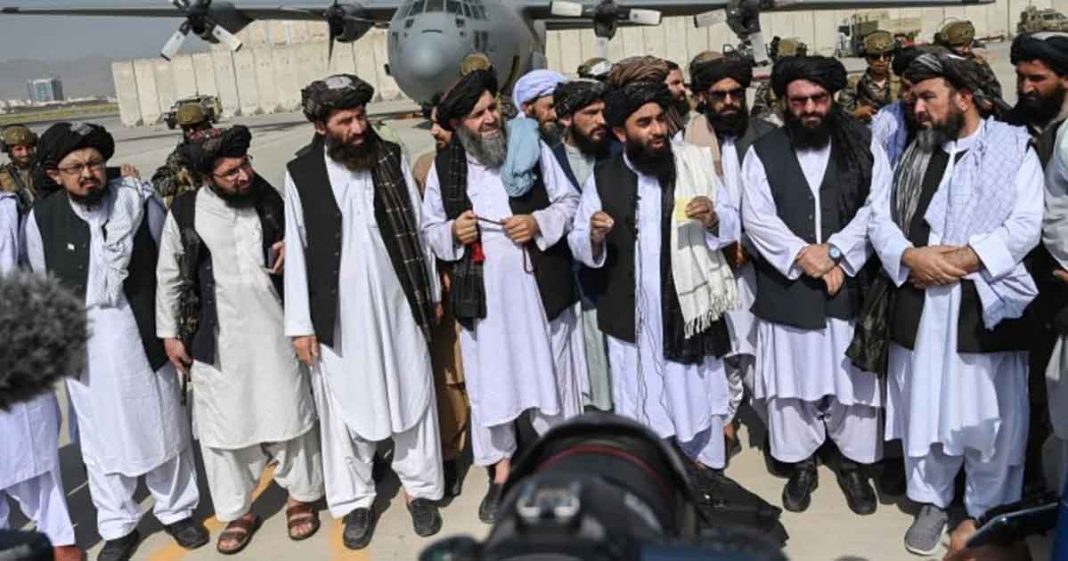The Taliban have returned to power twenty years after they were ousted from power back in 2001 when the US invaded Afghanistan. After a 20-years war, the United States withdrew from Afghanistan in July 2021, followed by the fall of Ashraf Ghani’s government and the Taliban’s shocking presumption of power. In September 2021, the group announced the formation of an all-male interim government and that the regime would be known as the Islamic Emirate of Afghanistan.
However, no country has yet recognized the Taliban government. The Taliban’s takeover of Kabul and the declaration of an interim government have placed the international community in a dilemma over whether or not to recognize the Taliban government. Since the hard-liner group took over Kabul, the international community has denied them recognition, mainly because of their human rights record and considering the fact that the group has not met the requirement of establishing an inclusive government and their seizure of power by force.
Read more: The Renaissance of new Taliban leadership in Afghanistan
Will the Taliban ever get international recognition?
The group has been seeking international acceptance, particularly asking Muslim countries to grant recognition to Afghanistan`s new government. However, the group’s inflexibility to moderate their position on human rights and the formation of an inclusive cabinet are factors blocking any international effort to legitimize the newly established regime in Afghanistan. In a bid to break this deadlock, the Taliban representative held a meeting with Afghan civil society and officials from the UN and Western world in Oslo recently. However, no particular breakthrough was announced.
Persistent conflicts since the 1970s, coupled with widespread poverty and drought, have resulted in millions of Afghan citizens in need of humanitarian assistance. Moreover, a collapsing economy and growing poverty as a result of the suspension of foreign financial assistance are exacerbating the misery of the masses. Prior to the Taliban`s takeover, Afghanistan was dependent on international assistance for 75% of its public funding. The Taliban’s return to power and the suspension of foreign financial assistance have led to a severe economic and humanitarian crisis.
The suspension of diplomatic relations with the Islamic Emirate, as well as the imposition of sanctions, would further destabilize the country and increase the risk of spillover effects for regional countries. The United States and its western allies are less concerned about these risks as they enjoy the luxury of distance. However, for regional countries, particularly the neighboring countries of Afghanistan, the risk of spillover effects is higher.
Read more: Taliban sniper becomes Afghan mayor
The region cannot bear the brunt of yet another civil war in Afghanistan
The world should engage with the Taliban and seek stability. The world countries should open channels of communication with Kabul. This would facilitate cross-border trade, open a window of development opportunities, and enhance border security cooperation. Furthermore, it would create more opportunities to work with the Taliban and lessen the risks of spillover effects, particularly refugee flows and cross-border terrorism.
The world has already recognized the Taliban as a stakeholder in Afghanistan’s domestic affairs by signing the Doha agreement with the group in 2020. The international community needs to work closely with the Taliban government and find ways to provide Afghanistan with economic assistance and push the hard-liner group to comply with international law and create a desirable environment for recognition of their government.
Read more: Afghan women band together to defy Taliban
As far as the Taliban are concerned, they should fulfill their commitments and impose rules that comply with international law. Also, they need to realize that an inclusive government will strengthen their rule. Rigidity would push the country into a worsening situation, bringing more misery to Afghan citizens. The Taliban needs to show greater flexibility and responsiveness to the demands of the international community. They should assure the international community that they will not impose harsh sanctions or violate human rights and that they will form an inclusive cabinet with equal participation of women and a more moderate form of Islamic rule than their previous regime.
The author is working as a Research Officer at Balochistan Think Tank Network, Quetta. The views expressed in this article are the author’s own and do not necessarily reflect the editorial policy of Global Village Space.














